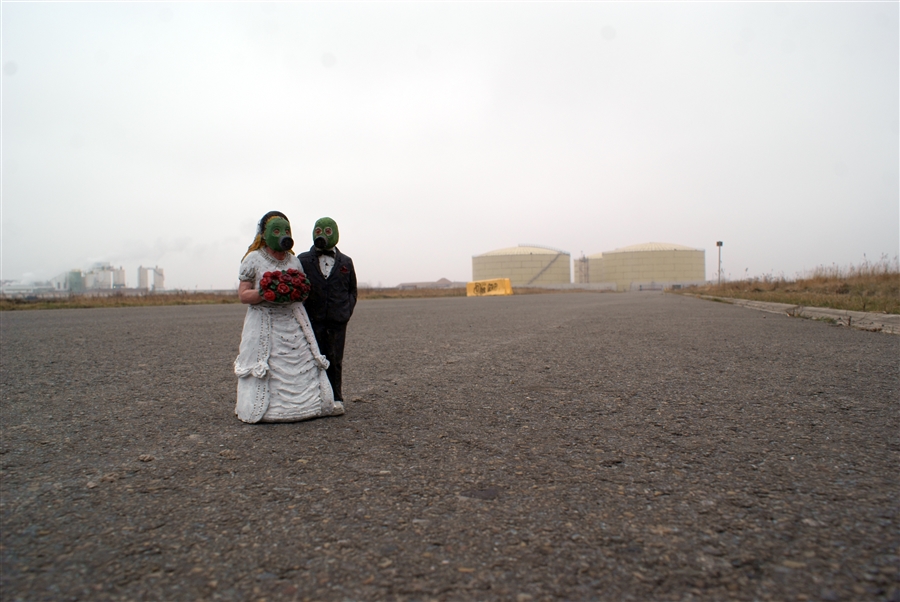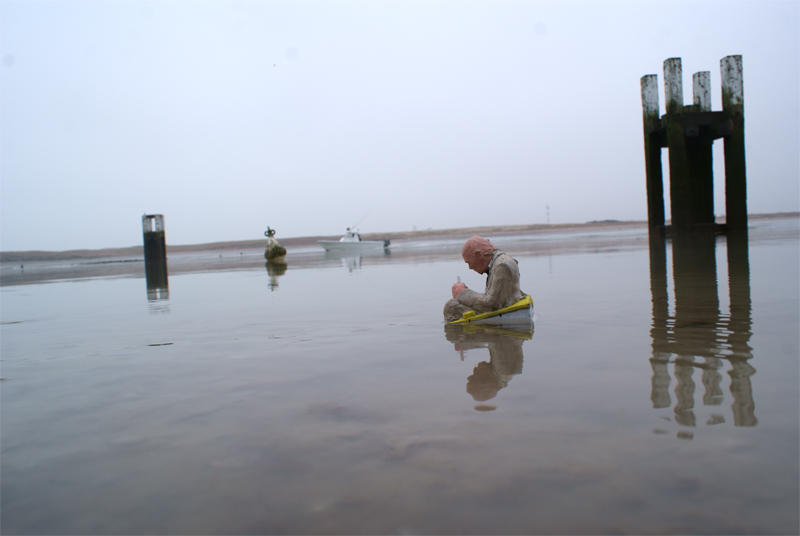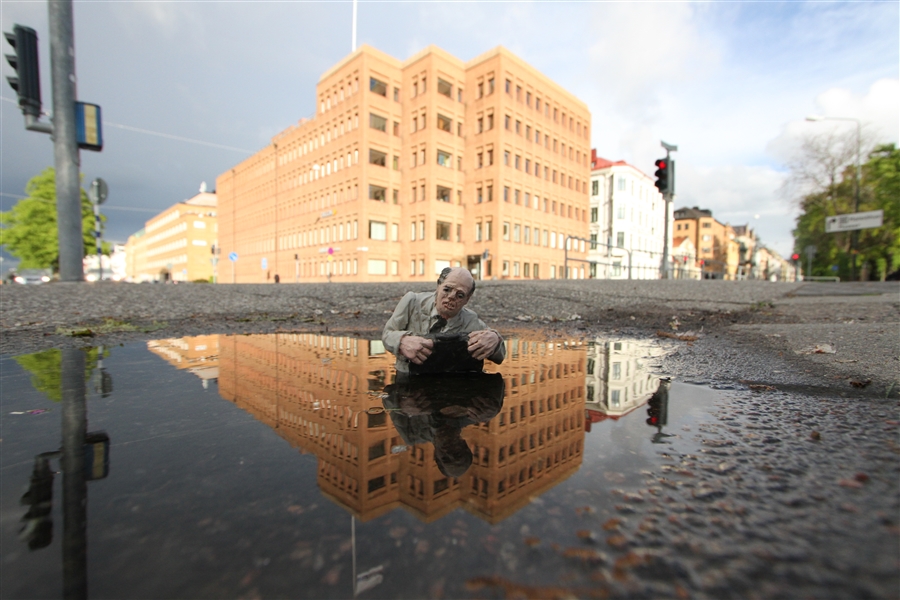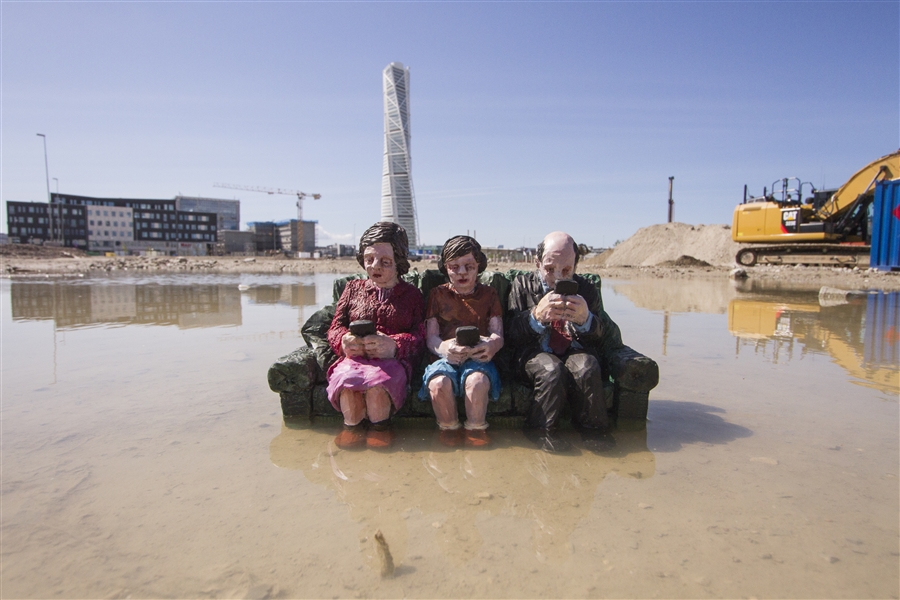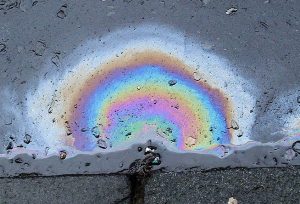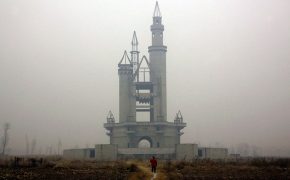What Is The Scientific Consensus On Global Warming?
The debate about whether our little blue planet is heating up and, if so, whether it is our fault, has been roaring on for decades. Although I’m already convinced by the evidence, a lot of people aren’t; the UKIP and Trump brigade are still staunch climate change deniers, for instance.
I thought it would be worth collating the opinions of the scientific community. What I found out actually surprised me.
It turns out that the debate about whether climate change exists or not has already been pretty much settled by the scientific community. A crushing 97% of scientists working in the field of climatology agree that global warming is happening and the vast majority of those believe that humanity and their fumes are at least an influencing factor.
If you were to read the general opinions written in the daily rags, you might be forgiven for thinking that things were a little more up in the air. In reality, scientists generally agree that our planet is warming (which will have widespread negative effects) and that we are responsible, or at least heavily involved in twisting the knife.
Unfortunately, law-makers and big business (which includes politicians) are not particularly interested in facts. They are only interested in their fat bottom lines.
Below, I have compiled quotes from some major scientific institutions laying out their standpoint on the issue of climate change. So, next time someone says something like “global warming? What a load of rubbish” you can argue confidently with the weight of science and evidence on your side.
(The images from this article are by Isaac Cordal, follow him HERE and HERE).
So, here are some weighty remarks from weighty institutions:
American Meteorological Society
“It is clear from extensive scientific evidence that the dominant cause of the rapid change in climate of the past half century is human-induced increases in the amount of atmospheric greenhouse gases, including carbon dioxide (CO2), chlorofluorocarbons, methane, and nitrous oxide.” (2012)
American Physical Society
“The evidence is incontrovertible: Global warming is occurring. If no mitigating actions are taken, significant disruptions in the Earth’s physical and ecological systems, social systems, security and human health are likely to occur. We must reduce emissions of greenhouse gases beginning now.” (2007)
NASA
“Scientific evidence continues to mount that the Earth’s climate is changing. While the scope, severity and pace of climate impacts are difficult to predict, it is clear that climate variability and climate change could have important impacts on NASA’s ability to fulfill its mission and thus merits a proactive and integrated response.” (2011)
“The current warming trend is of particular significance because most of it is very likely human-induced and proceeding at a rate that is unprecedented in the past 1,300 years.1 Earth-orbiting satellites and other technological advances have enabled scientists to see the big picture, collecting many different types of information about our planet and its climate on a global scale. This body of data, collected over many years, reveals the signals of a changing climate.” (article)
American Association for the Advancement of Science
“The scientific evidence is clear: global climate change caused by human activities is occurring now, and it is a growing threat to society.” (2006)
The Geological Society of America
“The Geological Society of America (GSA) concurs with assessments by the National Academies of Science (2005), the National Research Council (2006), and the Intergovernmental Panel on Climate Change (IPCC, 2007) that global climate has warmed and that human activities (mainly greenhouse‐gas emissions) account for most of the warming since the middle 1900s.” (2006; revised 2010)
World Health Organisation
There is now widespread agreement that the Earth is warming, due to emissions of greenhouse gases caused by human activity. It is also clear that current trends in energy use, development, and population growth will lead to continuing – and more severe – climate change.
International Academies: Joint Statement
“Climate change is real. There will always be uncertainty in understanding a system as complex as the world’s climate. However there is now strong evidence that significant global warming is occurring. The evidence comes from direct measurements of rising surface air temperatures and subsurface ocean temperatures and from phenomena such as increases in average global sea levels, retreating glaciers, and changes to many physical and biological systems. It is likely that most of the warming in recent decades can be attributed to human activities (IPCC 2001).” (2005, 11 international science academies)
U.S. National Academy of Sciences
“The scientific understanding of climate change is now sufficiently clear to justify taking steps to reduce the amount of greenhouse gases in the atmosphere.” (2005)
Federation of Australian Scientific and Technological Societies
“Global climate change is real and measurable…To reduce the global net economic, environmental and social losses in the face of these impacts, the policy objective must remain squarely focused on returning greenhouse gas concentrations to near pre-industrial levels through the reduction of emissions. The spatial and temporal fingerprint of warming can be traced to increasing greenhouse gas concentrations in the atmosphere, which are a direct result of burning fossil fuels, broad-scale deforestation and other human activity.” (2008)
American Chemical Society
“The American Chemical Society (ACS) acknowledges that climate change is real, is serious and has been influenced by anthropogenic activity. Unmitigated climate change will lead to increases in extreme weather events and will cause significant sea level rise, causing property damage and population displacement. It also will continue to degrade ecosystems and natural resources, affecting food and water availability and human health, further burdening economies and societies.” (website)
Royal Society (UK)
“There is strong evidence that the warming of the Earth over the last half-century has been caused largely by human activity, such as the burning of fossil fuels and changes in land use, including agriculture and deforestation.”
Royal Society of New Zealand
“The globe is warming because of increasing greenhouse gas emissions. Measurements show that greenhouse gas concentrations in the atmosphere are well above levels seen for many thousands of years. Further global climate changes are predicted, with impacts expected to become more costly as time progresses. Reducing future impacts of climate change will require substantial reductions of greenhouse gas emissions.” (2008)
American Geophysical Union
“Human‐induced climate change requires urgent action. Humanity is the major influence on the global climate change observed over the past 50 years. Rapid societal responses can significantly lessen negative outcomes.” (Adopted 2003, revised and reaffirmed 2007, 2012, 2013)
American Medical Association
“Our AMA … supports the findings of the Intergovernmental Panel on Climate Change’s fourth assessment report and concurs with the scientific consensus that the Earth is undergoing adverse global climate change and that anthropogenic contributions are significant.” (2013)
African Academy of Sciences
“A consensus, based on current evidence, now exists within the global scientific community that human activities are the main source of climate change and that the burning of fossil fuels is largely responsible for driving this change.” (2007)
European Academy of Sciences and Arts
“Human activity is most likely responsible for climate warming. Most of the climatic warming over the last 50 years is likely to have been caused by increased concentrations of greenhouse gases in the atmosphere. Documented long-term climate changes include changes in Arctic temperatures and ice, widespread changes in precipitation amounts, ocean salinity, wind patterns and extreme weather including droughts, heavy precipitation, heat waves and the intensity of tropical cyclones. The above development potentially has dramatic consequences for mankind’s future.” (2007)
European Science Foundation
“The scientific evidence is now overwhelming that climate change is a serious global threat which requires an urgent global response, and that climate change is driven by human activity.” (2007)
Geological Society of London
“The last century has seen a rapidly growing global population and much more intensive use of resources, leading to greatly increased emissions of gases, such as carbon dioxide and methane, from the burning of fossil fuels (oil, gas and coal), and from agriculture, cement production and deforestation. Evidence from the geological record is consistent with the physics that shows that adding large amounts of carbon dioxide to the atmosphere warms the world and may lead to: higher sea levels and flooding of low-lying coasts; greatly changed patterns of rainfall; increased acidity of the oceans; and decreased oxygen levels in seawater.
There is now widespread concern that the Earth’s climate will warm further, not only because of the lingering effects of the added carbon already in the system, but also because of further additions as human population continues to grow. Life on Earth has survived large climate changes in the past, but extinctions and major redistribution of species have been associated with many of them. When the human population was small and nomadic, a rise in sea level of a few metres would have had very little effect on Homo sapiens. With the current and growing global population, much of which is concentrated in coastal cities, such a rise in sea level would have a drastic effect on our complex society, especially if the climate were to change as suddenly as it has at times in the past. Equally, it seems likely that as warming continues some areas may experience less precipitation leading to drought. With both rising seas and increasing drought, pressure for human migration could result on a large scale.” (2010)
Australian Meteorological and Oceanographic Society
“Global climate change and global warming are real and observable … It is highly likely that those human activities that have increased the concentration of greenhouse gases in the atmosphere have been largely responsible for the observed warming since 1950. The warming associated with increases in greenhouse gases originating from human activity is called the enhanced greenhouse effect. The atmospheric concentration of carbon dioxide has increased by more than 30% since the start of the industrial age and is higher now than at any time in at least the past 650,000 years. This increase is a direct result of burning fossil fuels, broad-scale deforestation and other human activity.” (2010)
So that’s fairly overwhelming then. Of course there are two sides to any argument and there are some scientific organisations that have pitched themselves on the fence. But, since 2007, when the American Association of Petroleum Geologists revised their stance, there is no scientific body of national or international scientists that rejects the findings of human-induced effects on climate change. That’s right – none. This is the American Association of Petroleum Geologists’, pre-2007 official statement:
“[T]he AAPG membership is divided on the degree of influence that anthropogenic CO2 has on recent and potential global temperature increases … Certain climate simulation models predict that the warming trend will continue, as reported through NAS, AGU, AAAS and AMS. AAPG respects these scientific opinions but wants to add that the current climate warming projections could fall within well-documented natural variations in past climate and observed temperature data. These data do not necessarily support the maximum case scenarios forecast in some models.”
They decided to revise their tough stance. AAPG president Lee Billingsly explains why:
“Members have threatened to not renew their memberships… if AAPG does not alter its position on global climate change… And I have been told of members who already have resigned in previous years because of our current global climate change position… The current policy statement is not supported by a significant number of our members and prospective members.”
I don’t know about you, but I’m convinced.
MORE CLIMATE CHANGE INFO:
KIVALINA COUNTS DOWN THE HOURS
THE BLOB, A METEOROLOGICAL MYSTERY



